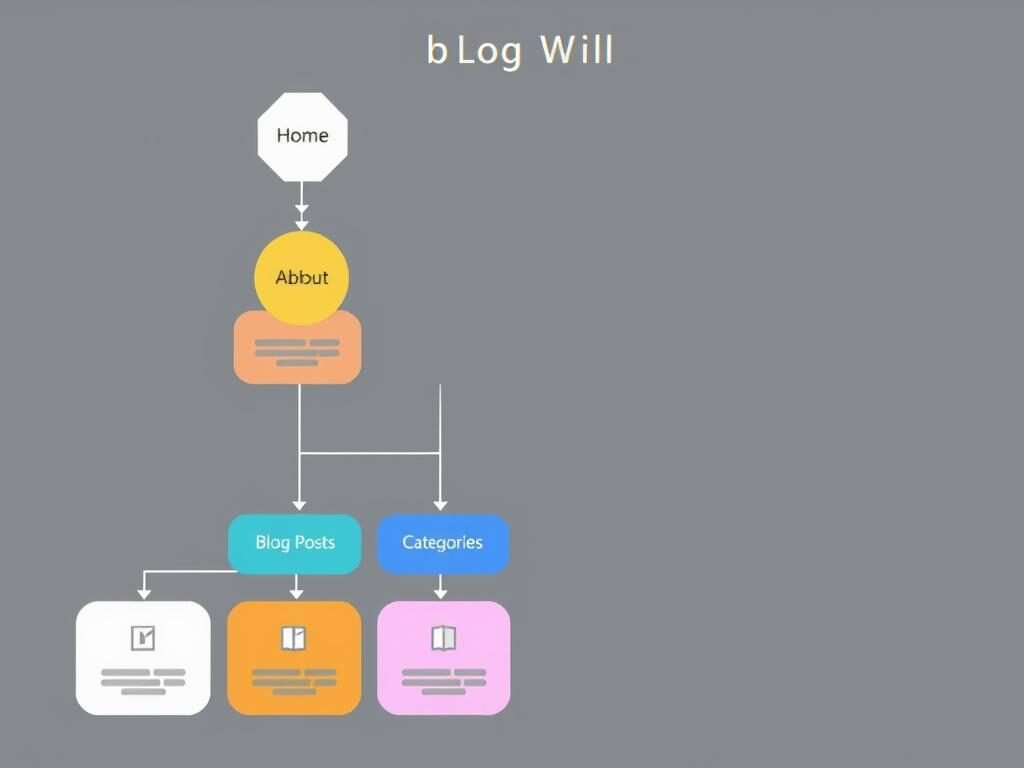Physical Address
304 North Cardinal St.
Dorchester Center, MA 02124
Physical Address
304 North Cardinal St.
Dorchester Center, MA 02124

Are you ready to start your blogging journey but don’t know where to start? This guide will show you how to begin a blog with Hostinger’s easy web hosting and WordPress setup. It doesn’t matter if you’re experienced or new to blogging. This step-by-step guide will help you create a strong online presence and share your ideas with the world.
Hostinger is a top pick for web hosting for your blog. It offers fast site speeds and affordable plans. This makes it a great tool for bloggers to thrive online.
Hostinger uses advanced servers for quick blog loading. Their focus on speed helps improve user experience and search rankings.
Finding budget-friendly hosting is key for bloggers. Hostinger has affordable hosting plans for all needs. Their clear pricing and flexible hosting options help you save money.
Managing your hosting shouldn’t be hard. Hostinger’s easy control panel helps everyone manage their sites. It also offers Hostinger features to make blogging easier.
HOSTINGER.com is perfect for both new and experienced bloggers. Its performance, cost, and ease of use make it a top choice for success.
Before starting your blog with Hostinger, you need the right tools and basics. This guide will help you get ready for a successful blog.
Picking a good domain name is the first step. It’s the web address your readers will use. Here are some tips:
Next, pick a web hosting plan that meets your needs. Hostinger has many options, like shared hosting and VPS. Think about storage, bandwidth, and performance.
With your domain and hosting ready, it’s time to install WordPress. Get to know the WordPress dashboard and its features for a smooth setup.
| Blogging Tool | Description |
|---|---|
| Domain Registration | Secure a unique web address for your blog. |
| Web Hosting Plan | Choose a reliable and cost-effective hosting solution from Hostinger. |
| WordPress | Utilize the powerful and user-friendly content management system. |
With these tools and basics, you’re ready to start your blog with Hostinger.
Starting a blog needs a good plan, and picking the right host is key. Hostinger is a top web hosting service that makes starting your blog easy. We’ll show you how to begin with Hostinger, from picking a domain to setting up WordPress.
Choosing the right domain name is vital for your blog’s brand and online look. Here are some tips to pick a domain that connects with your audience:
Hostinger has many affordable hosting plans for different budgets and blog needs. Think about storage, bandwidth, and how many sites you’ll host. Hostinger’s domain registration and Hostinger plans offer great value, perfect for new and seasoned bloggers.
Hostinger makes setting up WordPress easy, with just a few clicks. After picking your hosting plan, you can start your WordPress blog. Then, you can customize it to fit your style.
By following these steps, you’re on your way to a strong online presence and a successful blog with Hostinger. Next, we’ll explore setting up your WordPress dashboard and its features.
Starting your blogging journey with WordPress means learning about its powerful admin panel. This central place is where you manage your blog configuration and WordPress settings. Let’s explore the essential steps to set up your WordPress dashboard for easy blog management.
The WordPress admin panel has different sections for easier content creation and site management. When you log in, you’ll see the dashboard. It shows your blog’s activity, updates, and key tools. Spend time getting to know the layout and menu, as it’s your main tool for admin tasks.
One of the first things to do is set up your basic blog configuration and WordPress settings. You’ll need to update your site title, tagline, and admin email. Also, change the permalink structure to make your URLs clean and friendly for search engines.
You can make the WordPress admin panel your own. Check out the “Users” and “Appearance” sections to manage authors and customize the dashboard. You can also install plugins to improve the WordPress admin panel experience. Plugins can help with comments, analytics, and optimizing WordPress settings.
By getting to know the WordPress dashboard and setting up your blog configuration and WordPress settings, you’re ready for efficient blog management.
Choosing the right WordPress theme is key to a successful blog. It shapes your blog’s design and user experience. Whether you pick a premium or free theme, it greatly affects your blog’s look and function.
Premium themes offer more customization options and advanced features. They often require a fee, but they make your blog look professional. Free themes are a good starting point. They let you try different designs without spending money.
Knowing how to customize your theme is important, whether it’s premium or free. Most themes have an easy-to-use customization tool. You can change colors, fonts, layouts, and add custom CSS to make your blog unique.
In today’s world, your blog must be mobile-friendly. A responsive design works well on all devices. This ensures your readers have a great experience, boosting engagement and satisfaction.
By picking and customizing your theme wisely, you can make a blog that looks good and is easy to use. Whether you go for premium or free, focus on mobile-friendliness. Explore customization options to make your blog stand out online.
Starting a successful blog is more than just writing great content. You also need to create key pages to show your expertise and share important info about your blog and business. Let’s look at the main pages every blog should have.
Your about page is a chance to tell your story and introduce your blog and brand. Write a story that shows your background, skills, and why you started your blog. This page helps people know who you are and what they can look forward to from your posts.
Having a friendly contact form is important for connecting with your readers. This page should let visitors easily get in touch with you. You can also share your social media links and tell them how fast you’ll reply.
In today’s world, being open is crucial. Your privacy policy should explain how you handle your readers’ personal info. This page shows you care about their privacy and security.
Creating a solid blog structure with these key pages is essential. Spending time on these pages can really help your blog succeed.

“Your blog’s structure is the foundation upon which you build your online empire.”
Boosting your blog’s performance, security, and SEO needs the right WordPress plugins. These tools can change how you blog and help you succeed. Let’s look at the essential plugins that can make your WordPress site better.
Keeping your blog safe is key in today’s digital world. WordPress plugins like Wordfence Security and iThemes Security protect against threats. They monitor your site, offer two-factor authentication, and update security automatically.
Boosting your blog’s SEO is vital for more visitors and better visibility. Plugins like Yoast SEO and All in One SEO Pack help optimize your content and site. They give you tips and automate tasks to make your blog search engine-friendly.
A fast and responsive site performance is crucial for a good user experience and SEO. Plugins like WP Rocket and W3 Total Cache make your blog load faster. They optimize caching, minify code, and use CDNs to improve your site’s speed.
Choosing and using the right WordPress plugins can enhance your blog’s security, SEO, and site performance. This makes your online presence stronger and more engaging for your readers. Spend time finding and setting up these powerful tools to maximize your WordPress blog’s potential.
Writing your first blog post is exciting. It’s a big step in your content journey. Let’s look at the basics of writing well and using the WordPress editor to share your ideas.
Engaging your readers starts with great content. Start by planning your post’s structure. Make sure it’s easy to follow. Incorporate blog writing tips to grab attention right away.
Use your blog content creation skills to tell a story that speaks to your audience.
The WordPress editor is a big help in making your post look good. Learn how to use it to change text, add pictures, and make your content easy to find online. Use its tools to make your post look nice and easy to read.
To get more people to see your post, focus on SEO. Do some keyword research and make your titles and descriptions catchy. Use your keywords wisely in your content. This will help your post show up in search results and attract the right people.
With these tips, you’re ready to publish your first blog post. Enjoy the journey, try new things, and let your voice be heard. Happy content creating!

Keeping your blog safe and running well is key to sharing your content without trouble. As a blog owner, there are important steps to protect your site and keep it smooth. Here are some great tips to boost your blog’s security and upkeep.
Having a solid backup plan is your first defense against losing data or website problems. By backing up your blog’s content, database, and files regularly, you can quickly fix your site if something goes wrong.
It’s vital to keep your WordPress core, themes, and plugins updated for security and performance. Updates fix bugs, add new features, and protect against threats. Not updating can put your blog at risk.
Boosting your blog’s website security is key to protecting your content and user data. Some top practices include:
By following these blog security and maintenance tips, you can keep your blog safe and reliable for your content and audience.
| Task | Frequency | Benefits |
|---|---|---|
| Backup blog content | Weekly | Protects against data loss and allows for quick restoration in case of emergencies |
| Update WordPress core, themes, and plugins | Monthly | Enhances security, fixes bugs, and adds new features |
| Implement security best practices | Ongoing | Safeguards your blog against unauthorized access and potential threats |
Starting a blog with Hostinger and WordPress is within your reach. With Hostinger’s fast hosting and WordPress’s power, you’re ready for an exciting journey. You’ll be on your way to blogging success, Hostinger blog development, and WordPress mastery.
We’ve shown you how to set up your blog, from picking a domain name to publishing your first post. Hostinger makes it easy with its user-friendly interface and affordable plans. This guide is for both new and experienced bloggers, helping you create a successful Hostinger blog that connects with your audience.
Now, it’s time to start your blogging success journey. Use WordPress and Hostinger’s reliable hosting to express yourself. The possibilities for growth and sharing your ideas are endless. With this guide, you’re ready to master WordPress. So, start your blog, share your stories, and watch your online presence grow.